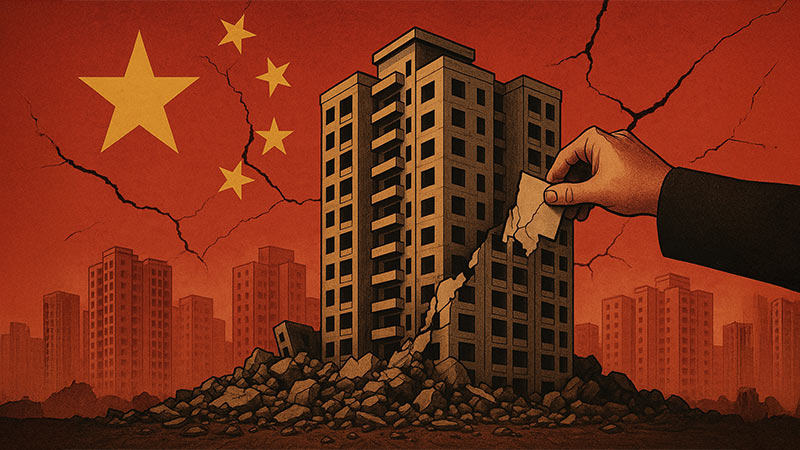Op Ed by Joe Gebbia | CEO, State Shield | State-shield.org
As the World Health Organization rushes to formalize its “One World Order” framework (established June 1, 2024, in Geneva), one can’t help but notice the broader architecture around it beginning to fracture. Major catalysts: President Trump’s defunding of the WHO, coupled with his stated intent to significantly scale back U.S. funding of the United Nations. These move exposes vulnerabilities not just within those institutions, but at the doorstep of their ideological architect—the World Economic Forum, the entity that has been utilizing the UN and WHO as their proxy. The WEF, now entangled in leadership shifts and mounting scandals, is losing credibility as the command center for global technocratic governance.
Yet the most telling indicator of the unraveling globalist model may be found in China. Once touted as the shining example of top-down economic control, China’s economy is showing severe cracks—from the collapse of its commercial real estate giants to an accelerating housing crisis that is now consuming the residential market.
Chinese home prices are in freefall – and it’s getting worse. Unlike most countries where soaring prices spark concern, China’s problem is the opposite: persistent and deepening declines. New home prices have dropped every single month over the past year, with a sharp 4% fall just last month alone.
Historically, new home sales made up 90% of all real estate transactions. Today, that figure has plunged to 66% signaling shrinking demand and eroding consumer confidence that is creating a seismic shift in market dynamics.
The collapse is not just a housing correction—it’s a national economic crisis of epic proportion. Nearly 70% of household wealth in China is tied up in real estate. For three out of every four homeowners, their property is their single greatest asset. And that asset has been losing value consistently for the past three years.
The fallout is significant. Wealth is evaporating, the middle class is retreating from the market, and confidence is in freefall. Paired with widespread layoffs and instability in the banking sector, real estate—the cornerstone of China’s economic stability—is no longer seen as a safe or reliable investment. This is a dangerous shift for the Chinese Communist Party, which has long relied on rising property values to keep its population economically placated and politically docile.
For Xi Jinping, this crisis presents an escalating challenge. The so-called “China Model,” once held up by the WEF, UN, and WHO as the prototype for global governance, is faltering. With a collapsing housing market, growing unemployment, and looming economic pressure from renewed U.S. tariffs and shifting trade policies, that once-bright beacon on the hill is flickering—and fading fast.

